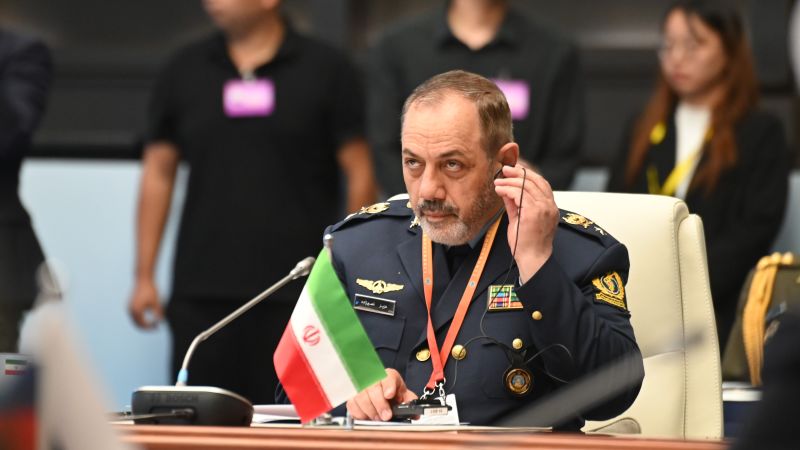Iran's Defense Minister Visits China Amidst Regional Tensions, Seeking Strengthening Ties

In a significant move following recent regional tensions, Iran's Defense Minister Mohammad Reza Ashtari has embarked on his first reported foreign trip since the 12-day conflict with Israel. The destination? China, a key diplomatic and economic partner for Iran. This visit signals a continued effort to bolster ties with Beijing amidst ongoing geopolitical complexities.
The recent clash between Iran and Israel, which briefly involved the United States, has heightened concerns about stability in the Middle East. The exchange of strikes underscored the fragility of the region and the potential for escalation. Ashtari's trip to China comes at a crucial time, as both nations share a common interest in de-escalating tensions and maintaining regional stability.
While the specific agenda of the visit remains somewhat opaque, Iranian officials have indicated that discussions will focus on military cooperation, technology transfer, and economic partnerships. China, with its growing global influence and substantial military capabilities, represents a vital strategic partner for Iran, particularly in the face of Western sanctions and diplomatic pressure.
Strengthening Bilateral Ties: A Strategic Imperative
This visit is not merely a reaction to recent events; it's part of a long-term strategy to deepen the relationship between Iran and China. Both countries have been steadily expanding their economic and military collaboration in recent years. China's Belt and Road Initiative, for example, offers significant opportunities for Iranian development, while Iran provides China with access to vital energy resources and a strategic foothold in the Middle East.
Experts believe that the timing of the visit is deliberate. With the conflict with Israel seemingly paused, Iran is seeking to consolidate its position and secure support from key allies. China, in turn, is likely interested in understanding Iran’s perspective on the regional situation and exploring avenues for peaceful resolution.
Implications for Regional Stability and US Involvement
The strengthening of ties between Iran and China has implications for the broader regional landscape and for the United States. A closer partnership between these two powers could complicate US efforts to contain Iran's influence and could potentially lead to a shift in the balance of power in the Middle East. The US will undoubtedly be closely monitoring the outcome of Ashtari's visit and assessing its potential impact on regional security.
Furthermore, the visit highlights the growing importance of China as a diplomatic player in the Middle East. China’s willingness to engage with Iran, despite international pressure, demonstrates its commitment to pursuing its own strategic interests and its desire to play a more active role in resolving regional conflicts.
Looking Ahead
As Mohammad Reza Ashtari’s visit unfolds, all eyes will be on the outcomes of the discussions and the potential impact on Iran-China relations. It is clear that this trip represents a significant development in the evolving geopolitical landscape of the Middle East, and one that will likely shape regional dynamics for years to come. The focus will be on whether this visit leads to concrete agreements and a further strengthening of the already robust ties between these two nations.






